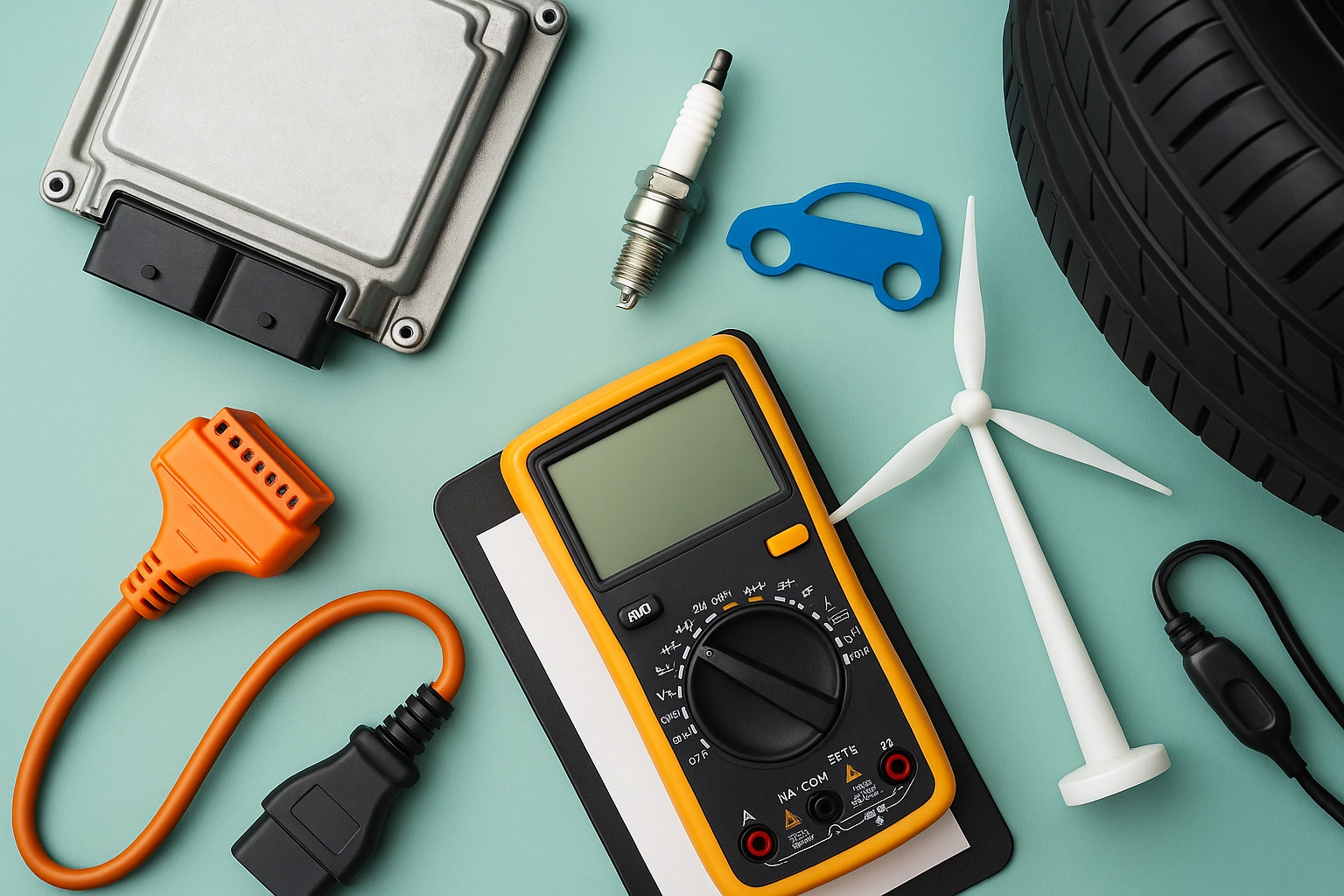ASTM E2109 EV Insulation Resistance Test
The ASTM E2109 standard specifies a procedure for measuring insulation resistance in electric and hybrid vehicles (EVs/HEVs). This test is essential to ensure the safety and reliability of electrical systems within these complex vehicles. By evaluating the insulation resistance, we can identify potential issues that could lead to dangerous conditions such as short circuits or electrical faults.
The ASTM E2109 test focuses on the integrity of the vehicle’s wiring harnesses, battery management systems, power electronics, and other critical components. A high level of insulation resistance indicates a well-insulated system, which is crucial for preventing the flow of unintended current. This standard provides clear guidelines for testing various parts of an EV or HEV, including:
- Battery packs
- Powertrain components
- Electrical harnesses and connectors
- Cab interior wiring systems
The test procedure involves applying a known voltage across the insulation and measuring the resulting current. The resistance is then calculated using Ohm’s law (R = V/I). This approach allows for consistent and repeatable results, ensuring that any deviations from acceptable levels can be accurately identified.
Before conducting the ASTM E2109 test, proper preparation of the specimen is necessary. This includes:
- Cleaning and drying the components to be tested
- Ensuring all connections are secure and free of debris
- Isolating the area under test from other electrical systems to avoid interference
- Applying a known voltage that is appropriate for the component being tested
The ASTM E2109 standard specifies minimum insulation resistance values based on the type and application of the component. For example, battery packs should have an insulation resistance greater than 50 MΩ/km, while powertrain components may require a higher value depending on their specific design.
During the test, care must be taken to ensure that the specimen is not damaged or altered in any way that would affect the integrity of the results. After testing, it is important to document all findings and compare them against established acceptance criteria. Any deviations from these criteria should prompt further investigation into the cause.
By adhering to the ASTM E2109 standard, manufacturers can ensure that their vehicles meet stringent safety standards and provide peace of mind for consumers. Regular testing helps maintain system reliability over time and can help prevent costly repairs or recalls due to latent defects.
| Component | Minimum Insulation Resistance (MΩ/km) |
|---|---|
| Battery Pack | >50 MΩ/km |
| Powertrain Components | >100 MΩ/km |
| Cab Interior Wiring Systems | >20 MΩ/km |
The ASTM E2109 standard is widely recognized and used in the automotive industry. Its rigorous testing procedures help ensure that electric and hybrid vehicles are safe, reliable, and meet regulatory requirements.
Benefits
- Safety: Identifies potential hazards before they become critical issues.
- Reliability: Ensures consistent performance of electrical systems over time.
- Compliance: Meets industry and regulatory standards for vehicle safety.
- Reduction in Failures: Minimizes the risk of component failures that could lead to costly repairs or recalls.
- Data Accuracy: Provides reliable data for ongoing quality control processes.
The ASTM E2109 test is a crucial step in the manufacturing and maintenance process of electric and hybrid vehicles. By incorporating this testing into your quality assurance protocols, you can ensure that your products meet the highest safety standards and provide long-term value to consumers.
Industry Applications
The ASTM E2109 test finds extensive use in various aspects of electric and hybrid vehicle manufacturing and maintenance. Here are some key applications:
- Battery Systems: Ensuring the integrity of battery packs prevents potential short circuits that could lead to fires or explosions.
- Powertrain Components: Testing powertrain components guarantees safe operation during acceleration, braking, and other dynamic driving conditions.
- Cab Interior Wiring Systems: Maintaining proper insulation in the cab interior helps prevent electrical shocks for passengers and drivers.
- Electrical Harnesses & Connectors: Ensuring that all connections are secure and properly insulated reduces the risk of malfunctions during critical driving scenarios.
By adhering to ASTM E2109, manufacturers can ensure a safer driving experience for consumers while also complying with international safety standards. This testing is particularly important as electric vehicles become more prevalent on roads worldwide.
Eurolab Advantages
At Eurolab, we offer comprehensive testing services that go beyond the ASTM E2109 standard to provide you with total peace of mind. Our team of experts uses state-of-the-art equipment and follows strict protocols to ensure accurate results every time.
- Expertise: Our staff is well-versed in the latest testing techniques and industry best practices.
- Accurate Results: We use high-precision instruments that adhere strictly to ASTM E2109 guidelines.
- Comprehensive Reporting: Detailed reports are provided with all test results, including comparisons against acceptance criteria.
- Custom Solutions: Eurolab can tailor testing protocols to meet the unique needs of your products and processes.
- Regulatory Compliance: All tests are conducted in accordance with relevant international standards such as ISO, ASTM, EN, IEC, etc.
We understand that safety is paramount when it comes to electric and hybrid vehicles. At Eurolab, we take pride in delivering reliable test results that help you meet the highest industry standards while ensuring your products are safe for consumers.





